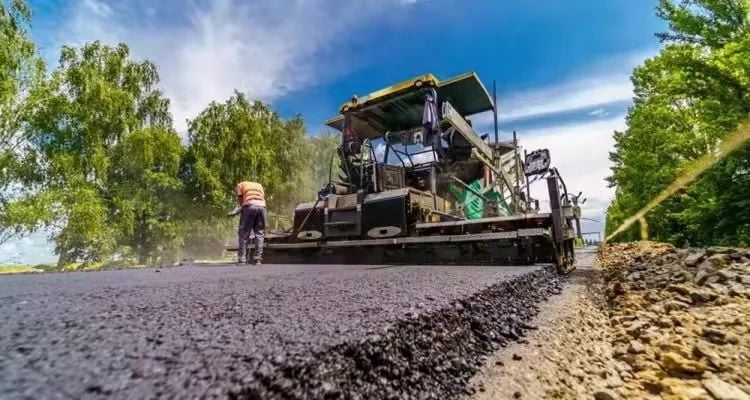Recently, Wageningen scientists have developed a sustainable asphalt component from the biomass resource lignin. It has been tested on bicycle paths and provincial roads and has proven to be a high-quality material. In addition, this bio-asphalt significantly reduces CO2 emissions.
Replacing 50% of asphalt with lignin can reduce CO2 emissions by 70%. This technology can make a significant contribution to achieving the UN 2030 Agenda for Sustainable Development and China's goal of achieving carbon neutrality by 2060.
Sustainable alternatives

So Wageningen researchers set out to find a sustainable alternative to asphalt, and the researchers chose lignin, a black liquor used in the production of paper and cardboard. This natural binder has the same structure and bonding qualities as bitumen and can be produced in large quantities. Currently, the pulp and paper processing industry uses lignin mainly for low-value applications, such as as an energy fuel. In 2015, the first 70 m wood In 2015, a 70 m long lignin tar test road was laid for the first time in the Dutch province of Zeeland. There are currently more than 30 test roads with lignin pavement, including a bike path on the Wageningen campus and a provincial road in Groningen, among others. One of the roads in Vlissingen even contains lignin in every layer of asphalt, partially mixed with recycled asphalt. The roads were built by partners in the construction industry, and Wageningen researchers regularly sampled the asphalt to measure its durability. To date, these tests have produced positive results: the roads are in good condition and all requirements are met.

Reduce carbon emissions
The application of lignin resulted in a significant decrease in CO2 emissions. According to Richard Gosselink, a lignin expert who has been involved in the study from the beginning, CO2 emissions were reduced by 35-70% by replacing half of the asphalt.
Greenhouse gases are isolated on the road for a long time. Another major advantage is that lignin can be produced at much lower temperatures and therefore requires much less energy to produce.
The potential of lignin exceeds that of asphalt, and WUR has worked with the Dutch company Trespa to develop panels that can be used indoors where half of the toxic phenol is replaced by lignin. Trespa calculates that this reduces CO2 emissions by 30-50%. More and more companies are interested in the commercial application of this sustainable adhesive.

